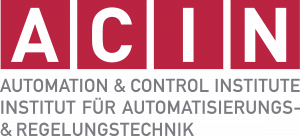Christian Doppler Laboratory for Intelligent Process Control for High-Quality Steel Products
Duration: 1 July 2022 until 30 June 2029
The CD-Laboratory for Intelligent Process Control for High-Quality Steel Products is a cooperation between the Automation & Control Institute (ACIN) of TU Wien and the steel manufacturer voestalpine Stahl GmbH. Together, they conduct problem-oriented fundamental research, which should create novel strategies for the analysis, management, control, and optimization of typical processes for the production of high-quality flat steel products and conceptually similar production processes.
The first step of these research activities is usually the development of tailored static and dynamic process models, which can be executed in real-time. To derive these models, learning methods, efficient numerical approaches, and model-order-reduction techniques can be used in combination with physical and metallurgical theory, domain knowledge, and extensive sets of measurement data. Based on these models, the next step is often to conduct systems and sensitivity analyses, tests for stability and robustness, as well as simulation studies. This allows a precise formulation of control objectives and finally the scientific research and development of control solutions. The conducted fundamental research captures model- and optimization-based design methods (e.g., disturbance observers and disturbance feedforward control, controllers for distributed-parameter systems or time-delay systems, nonlinear multivariable controllers, NMPC, MHE, optimal placement of sensors and actuators) as well as adaptive, data-driven, and learning-based methods (e.g., machine learning, ILC, repetitive control, extremum seeking, sensor fusion, robust and adaptive control, online identification and monitoring) for process control and the estimation of non-measurable process variables.
The research activities are grouped into the following subject areas.
- Control of continous casting processes
- Control of strip material properties
- Control of strip surface properties
In the area continous casting, process control concepts are developed to influence the fluid flow above and in the submerged entry nozzle, to suppress fluctuations of the mold level, to minimize unsteady bulging of the strand shell, and to uniformly distribute the strand withdrawal forces on the driven support rolls. Moreover, observer algorithms are designed for real-time estimation and monitoring of deposits in the casting channel, exogeneous disturbances of the mold level, as well as wear and slip of the strand support rolls. In the areas strip material properties and strip surface properties, advanced process control concepts for thermal treatment, hot-dip galvanizing, and temper rolling of steel strips are developed. This includes optimal feedforward control and feedback control of microstructural constituents and quality parameters of the strip material, the thickness, uniformity, and metallurgical composition of the zinc coating layer, as well as the strip surface quality.
Together with voestalpine Stahl GmbH, the newly developed real-time control solutions are implemented, validated, and further optimized in pilot applications directly at the industrial plant or at specialized experimental devices. This facilitates an efficient and sustainable transition to a commercial use. The generated fundamental research results are not limited to applications in the steel industry because they can also be used in many other industrial production processes. In the form of scientific publications and lectures, the research results are publicly diseminated.
Operated by
Supported by
Funded by
 Christian Doppler Research Association
Christian Doppler Research Association



